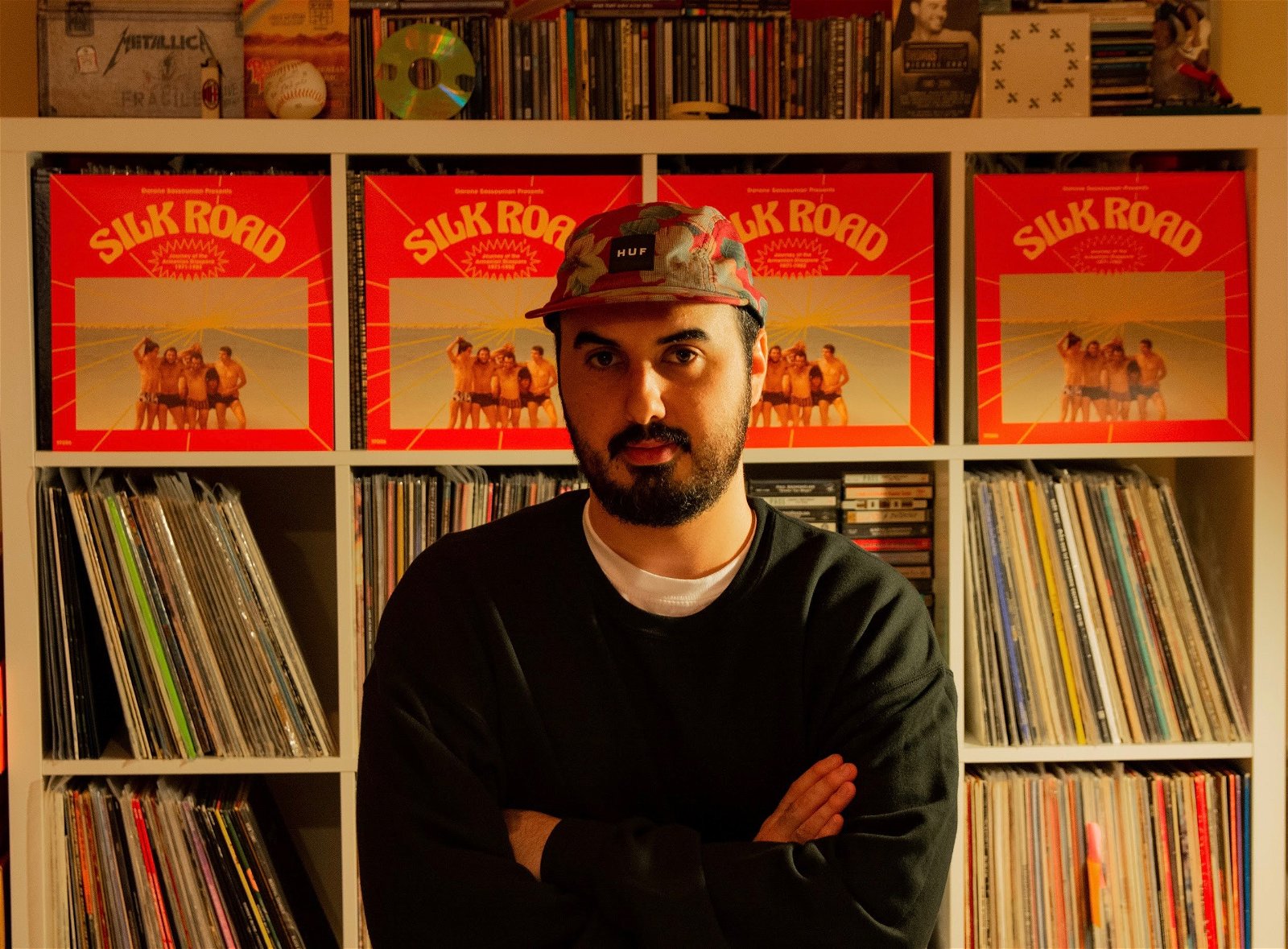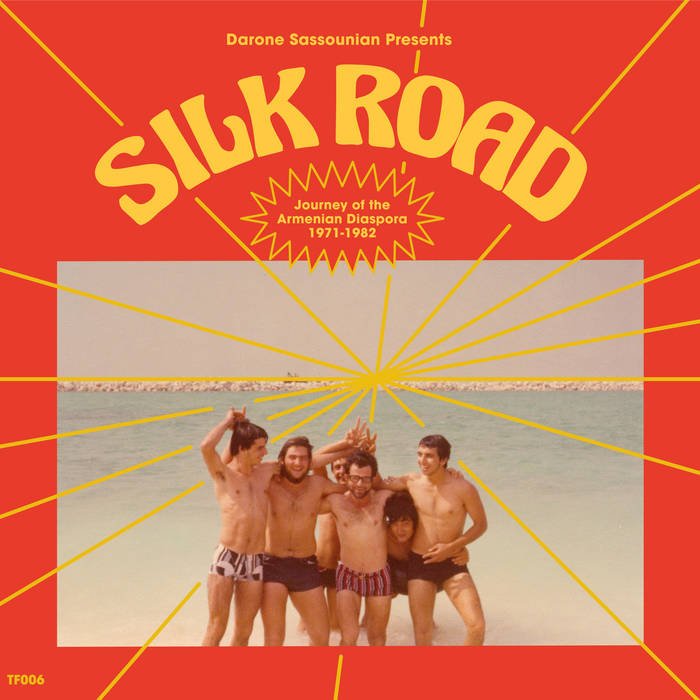Over the years, music has taken various shapes and forms. The modernization of music has had a direct impact on our culture as humans, making way for an opportunity to create a totally new world of sophisticated sounds. Through this natural process of development, many artists have comfortably settled in a place that is safe, secure and unchanging, repeatedly releasing slightly-altered versions of the same uninspired song.

This, however, is not the case for Los Angeles-based Armenian-American DJ, selector and producer Darone Sassounian, who runs the indie artist management and booking label Rocky Hill, working with eclectic artists such as Bosq, Basil & Rogers, David Haffner, Rocky Hill Corps, and Thomas Blondet. As an artist, Sassounian has constantly tried to break the boundaries of what a genre is and can be, yet entirely recognizes the importance of the old masters and stays heavily connected to his roots. He has zeroed in on introducing a wide array of sounds to the world that place more of an emphasis on emotions and texture instead of established traditional characteristics, derived from styles he grew up on as a child, to sounds he was introduced to later down the line. Though he has a technical background, Sassounian’s creative process is anything but structured.
“Everything that I do is done naturally,” says Sassounian. “Rocky Hill is an extension of who I am, so it doesn’t have any guidelines. If it sounds good to me, if I like it, and if I can work with that kind of music, then I am completely open to it. There are no boundaries, no limits, no genres. It’s all about the feeling.”
This free-spirited attitude was instilled in Sassounian early on. Growing up, he was raised by a musical family who fostered his passions by placing him in classical piano, jazz piano and drumming classes. His extensive knowledge of music doesn’t start and end at knowing how to read music, however.
“I grew up listening to Zouk, soul, rock, pop, funk…Armenian and Middle-Eastern music, of course. From time to time, there was even Brazilian, French, Italian and Greek music playing in the house,” he recalls. “When I was younger, my dad traveled a lot and would bring CDs and ‘exotic’ records from his travels. I was naturally immersed in all these genres because of my environment.”
All these genres, yet where is all the Armenian music? How is all this music from all these cultures a click away? Surely, it is not possible that all there is is all that is available, right? Those were the very questions Sassounian had and he decided to seek out the answers.

And he found them. A three year long process, Sassounian himself meticulously compiled, curated and released his full length compilation—”Silk Road: Journey of the Armenian Diaspora (1971 – 1982)” via Terrestrial Funk on February 22, 2021. This was by no means a simple task, and there were absolutely no shortcuts on his end. It may be hard to believe, but in a project so incredibly research-based, the Internet was not used once. He swapped the now common methods of online digging to the more unconventional route of building this project from the ground-up, producing the most obviously fervent results. A mere look at the record and any first-time glancer will immediately recognize the sheer passion and effort that went into a project that will be revisited for years to come. From France to Lebanon and various places all across the United States, Sassounian visited a wide array of record stores and handpicked a carefully selected catalog of music, ranging from silky disco tracks [Eddy Jeghelian’s “Im Sireli Ashdarag (My Dear Ashdarag)”], unique vocal styles (Avo Haroutiounian’s “Tears On My Eyes”), and even 60s psychedelic and beat music-derived inspirations [Harout Pamboukjian’s “Taparoum Enk (We’re Wandering)], all characteristics of music that was never associated with Armenian music before…until now.
“I am inspired by my own cultural and ethnic identity. Our people are very caring and loving and have always faced the threat of ethnic erasure, and because of that, I approach my work in the same respect and accept artists [to Rocky Hill] with open-arms,” said Sassounian. “Incorporating Armenian and Middle Eastern music in my work has actually kept me competitive as a selector. My goal is to take the audience on a journey as opposed to merely playing tech-house.”
From these couple visits to record stores alone, Sassounian returned to Los Angeles with an estimated two-hundred records. This time-consuming process involved sifting through hours upon hours of pressed, mixed and mastered versions of Armenian history set to song. The result is a seven-track work of art, featuring eccentric, inventive music that truly captured Western seventies sounds from the Armenian perspective. By releasing “Silk Road,” Sassounian has shed a blinding spotlight on the previously underappreciated and unknown aspects of our culture and showcases, once and for all, the comprehensiveness possessed by Armenian musicians. It is a testament to the strength of the Armenian Diaspora, encapsulating that message completely by featuring artists from Australia to Lebanon to the United States.
“The goal was to not only showcase the music to a broader audience demographically speaking, and the history, of course,” he states, “but to also showcase this project to the Armenians of today’s generation and of the past generation…because most of these tracks were thrown out of the balconies in Beirut during the civil war.”
This compilation was a gift—a gift from the diaspora to the generations before us who have survived the Armenian Genocide, who have been faced with anti-Armenian sentiment, who have survived war after war, trial after trial. Yet, in the midst of all this, the Armenian people have adopted outlets, such as music, and have understood that the only way through is forward.
As Sassounian says, it’s all about the feeling. Nothing less, nothing more.




Great read!!
Thank you!
silk roads has a lots of mis information about armenian music
How so? Mr. Sassounian is incredible at what he does and the Silk Road project was deeply researched and meticulously created.
Well written information article about Mr. Sassounian. It has many deficiencies, in general, about Armenian Music. Where did Mr. Sassounian collect this information from? What sources were used and were they credible? You can’t base facts about ‘a feeling’. He may return with 100s of more records, but his facts are lacking genuine history of our prior legends, who created the Armenian music.
Mr. Sassounian is an artist who brings Armenian music to a scene that has never heard it before. If you ask me, it is a wonderful thing to introduce our prior legends to a current audience.
Its wonderful but many artists are left out in his ‘research’ which contributed very largely to our music. I don’t blame him but his work is incomplete and has many wrong informations. You and everyone can believe or not. Doesn’t matter. Thank you.